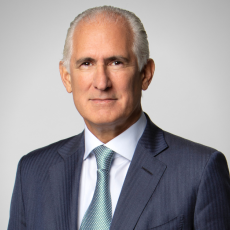How important do you think women's health is in the path towards equality, especially considering innovations like the pill and subsequent advancements?
Women's health is pivotal in the journey towards equality.
The historical focus on women's health primarily around reproductive health - fertility and contraception - has been too narrow. We need a broader perspective that encompasses maternal health, gynecologic health, and conditions unique to women like postpartum hemorrhage, preeclampsia, uterine fibroids, endometriosis, and polycystic ovary syndrome. This broader view is essential for a demographic that makes up half of the world's population. Furthermore, conditions disproportionately impacting women, such as osteoporosis, migraines, lupus, and celiac disease, demand more attention and research. Despite the critical nature of these issues, only a small fraction of FDA approvals have been for female-specific conditions, just 4 of the 53 total FDA approvals in 2023, indicating a significant gap in R&D initiatives. As a company with a focus on women's health, we see the necessity and opportunity for innovation in this area and are committed to leading in this space.
Can you share any recent developments or accomplishments in women's health that you're particularly excited or proud of?
This past year has been a testament to the growing recognition of the need for greater investment in women's health. A notable highlight is the First Lady of the United States, Jill Biden's, call to action for increased R&D investment in women's health. This aligns with our observation of other governments, like France and the UK, launching women’s health initiatives that address conditions like endometriosis and post-menopausal symptoms. These steps indicate a growing recognition and commitment to women's health. In addition, there's a growing focus on demographic resilience in countries like China, Japan, and Korea, which further underscores the importance of this field. These global signals affirm the critical need for continued and enhanced investment in women's health-related R&D and innovation.
How do you envision leveraging technology and innovation, particularly AI, to improve patient outcomes in underrepresented areas like women's health?
Artificial Intelligence (AI) holds tremendous potential for the biopharmaceutical sector, especially in women's health. With AI's estimated annual economic impact reaching trillions, its application in our industry can revolutionize many aspects. For instance, our medical affairs team is piloting the use of AI to analyze insights from thousands of professional interactions, enhancing the feedback we provide to the scientific community. Additionally, in clinical research like Organon’s OG-6219 ELENA trial for endometriosis, digital technology, like an app on participants’ personal devices can capture efficacy, quality of life, and key safety aspects associated with the investigational product.. This digital transformation is not just about efficiency; it's about speeding up the process to bring life-altering innovations to the market faster. The synergy between technology and life sciences could be revolutionary, potentially altering the entire biopharmaceutical landscape.
Could you discuss Organon's approach to sustainability and environmental responsibility within the pharmaceutical industry?
At Organon, our commitment to Environmental, Social, and Governance (ESG) principles is deeply integrated with our business strategy. We focus on accelerating innovation in women's health and ensuring access to these innovations. Gender equity is foundational to our approach, as evidenced by our diverse board composition. Additionally, our corporate goals include significant initiatives like preventing 120 million unplanned pregnancies by 2030. This goal aligns with our "Her Promise" initiative, which collaborates with global organizations to provide education, training, and access to affordable contraceptive options in the least developed countries. Our efforts reflect a holistic approach to addressing global women's health issues, making a meaningful impact beyond our immediate business interests.
In light of the current political climate, how do you perceive the policy framework impacting Organon and the life sciences industry, particularly in women's health?
The policy framework plays a crucial role in shaping the landscape of women's health. We actively engage with government officials worldwide to create investment opportunities, such as through sustainable finance, which offers low to zero interest loans for addressing women's health issues. There's a strong case for allocating funds, historically directed to so-called green tech, towards women's health as well. However, challenges remain, including cost containment and healthcare expenditure management policies like the IRA. One of our focal areas is the regulatory environment, which is catching up to include women in clinical trials and establishing clear pathways for women's health-related conditions. Despite slow progress, we are advocating for accelerated pathways similar to those in oncology and central nervous system issues, specifically for women's health to speed new innovations to the people that need them.
What are the main objectives and challenges for Organon in advancing women's health in the next five years?
Our primary objective is to mainstream women's health, requiring serious commitment and investment from governments and the biopharmaceutical industry. The key to achieving this is developing blockbuster products that effectively address conditions like endometriosis, polycystic ovary syndrome, and preeclampsia. The lack of sufficient R&D in women's health has led to an underserved market. Increasing R&D efforts is essential for innovations that move beyond defining women's health as merely reproductive health. We aim to turn words into actions, leading to innovations that meet these unmet needs. The ripple effects of such advancements are vast, potentially addressing issues faced by half the world's population.
Do you think the lack of focus on women's health is due to a lack of awareness or education among politicians, investors, and other biopharmaceutical companies?
The lack of momentum in women's health is multifaceted. From a biopharmaceutical perspective, the absence of significant R&D investment resulting in blockbuster products has hindered attention in this area. Successful, high-revenue products tend to attract more R&D interest. In comparison, oncology, which was once a less explored field, has seen immense investment and innovation following breakthroughs in immuno-oncology. On the policy and advocacy side, social movements have amplified the demand for health equity alongside pay and gender equity. This societal shift is leading to governmental actions, such as the efforts I mentioned earlier in the UK and France, and now with recent initiatives by the White House, reflects a broader recognition of these needs. The momentum is building, and it's unlikely that we will revert to a time when these issues were not acknowledged or prioritized.





